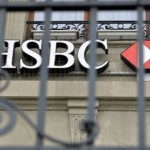Europe’s big banks remain wary of doing business with Iran

Sanctions have been lifted but uncertainty over US authorities’ stance means banks are reluctant to handle payments
A week after the lifting of sanctions against Iran, major European banks are still reluctant to handle Iranian payments as they remain wary of being the first to test the reaction of US authorities.
Despite guidance issued by the US treasury aimed at reassuring Europe that it was permissible to do business with Iran, excluding a number of entities and individuals that remain blacklisted, the continent’s big banks still err on the side of caution.
The Guardian approached 10 banks this week to see if they would process Iranian payments. The majority were unwilling to disclose whether they had plans to deal with Iran, a few said there was no change in their existing policy, and the London-based Standard Chartered, which was fined £400m by the US authorities in 2012, issued a statement to make clear it was not dealing with anyone or any entity that had anything to do with Iran.
This contrasts with the desire of European companies and European governments to increase trade with Iran from the current €7.6bn (£5.8bn) to the pre-sanctions figure of almost €28bn. An unprecedented number of EU business delegations have already visited Tehran and the Iranian president, Hassan Rouhani, is expected in Rome on Monday and then Paris on Wednesday to revamp Iran’s relations with Europe.
“I am yet to find one tier-one European investment bank that wants to go back into Iran,” said a senior European banker who did not want to be named. Sanctions compliance departments in big banks are busy digesting a 50-page guidance provided by the US treasury’s office of foreign assets control (OFAC) – some say the text is so complicated it may deter businesses from returning to Iran, while others fear it may be open to interpretation.
The Guardian visited an HSBC branch in London last week to see if it was possible for an Iranian resident in the UK to open a personal bank account. It was not still possible but that was likely to change in two weeks’ time, a branch officer said.HSBC later issued a statement, saying: “There are a number of factors we take into consideration when opening a new account and we judge each application on an individual basis.”
Barclays, Société Générale, RBS, Citi, Commerzbank and Deutsche Bank declined to say if an Iranian national unrelated to the Iran government, such as a student, was able to open a personal account with their banks. “Deutsche Bank will, for the time being, stick to its decision of withholding from doing business connected to Iran,” said a spokesperson.
The general mood is to wait and let the others risk first. Smaller European banks or those in China and Russia that are not concerned about the US market, however, are more likely to lead the way.
Banks are particularly worried about US primary sanctions related to terrorism and human rights violations that remain in place. “We know the Iranian Revolutionary Guards (IRGC) are sanctioned as a terrorist entity. They own a vast amount of economy through bonyads [trusts], ownership schemes which we can’t fathom, so it’s very difficult to operate in Iran without hitting the Revolutionary Guards or somebody else who is sanctioned by the Americans, and you are extra-territorially sanctioned by the Americans if you do deals with IRGC-linked elements,” the senior banker said.
“Moreover, the FATF [an inter-governmental body combating money laundering and terrorist financing] stills views Iran as a non-compliant jurisdiction of money laundering, as we all know corruption is rampant, so it’s not just worth the candle at the moment.”
Citing the case of BNP Paribas, which was heavily fined last year over sanctions violations involving Iran, the senior banker said European banks were worried that the US could ban them from dollars in the US capital market.
“Sanctions are still in place in the US really. It’s only nuclear-related sanctions that have been relaxed, even if you even open an office in Tehran and you’re using Microsoft operating system, you can still be in trouble,” said the banker.
“It’s not just OFAC, you’ve got other regulatory authorities in the US, which are not as transparent about their guidelines, particularly New York department of financial services, which doesn’t offer FAQs and won’t meet non-American entities to discuss issues about sanctions. You’ve got the Federal Reserve, you’ve got a lot of agencies out there which can punish you for the same offence, so it’s not just OFAC.
“There’s also a reputational risk, whoever goes in first they’re going to be watched like a hawk by those who oppose the deal, the Israelis, Saudi Arabians, Republican American entities,” the banker said, saying that his bank was particularly under pressure from the US pro-Israel lobby, AIPAC. “I can’t see any movement for at least six to 12 months.”
The banker added: “Most banks in Europe and UK have been sanctioned for transgression on Iran, and some of them have entered agreement with OFAC, what’s called the deferred prosecution agreement, where they’ve said they won’t do any deals with Iran, so do they break that agreement, has that agreement changed?”
Iran’s Middle East Bank said this week it has requested to be linked up with 40 international banks through the Swift global transaction network. “My feeling is it is going to take a couple of weeks or so before we start to see proper re-engagement. It will be slowly, slowly,” the bank’s head, Parviz Aghili, told Reuters.
Many services are denied to Iranians not because providers are legally bound to refuse them but because they err on the side of safety for fear of running foul of the policy. At least one Iranian said his account was closed down recently after 10 years. “I know six other ordinary Iranians in the UK who’ve had their bank accounts closed abruptly,” he told the Guardian.
A businessman from Switzerland who visited two major Swiss banks this week said he was told they were waiting for other banks to try first and see the reaction of the Americans. “Banks are worried about interpretations of these guidances, so they’re still waiting for others to test the water.”
Emil Dall, an analyst at the Royal United Services Institute who has read the guidance, said European companies still fear being caught up in what remains a complex US sanctions web. He said while the US treasury has offered substantial clarifications, they reveal a number of possible practical complications for EU companies.
“One complication is the matter of the definition of ‘US control’ or ‘US ownership’. US-owned or controlled entities will still be bound by the US trade embargo on Iran if a US person holds a 50% or greater stake or ‘otherwise controls the actions, policies or personnel decisions’ of the entity,” he said. “Exactly where the lines of control will be drawn and how the definition will be enforced remains to be seen, but EU companies with a US parent will need to ensure that their business is conducted without US involvement – whether that be in terms of decisions, materials or support.”
However, Dall said EU banks can rest assured that they will not be subject to US penalties for their relations with Iranian banks, even if those Iranian banks conduct business with still-sanctioned clients. “This clarification is highly noteworthy. It was feared that the financial sector would be one of the slowest moving in terms of re-engagement with Iran. This clarification may now alter the calculations of banks, in the process increasing the likelihood that other sectors are less inhibited by their inability to find methods of financing for Iranian trade.”
“All of the clarifications provided by the US and EU authorities make one thing clear: companies looking to re-engage with Iran face a monumental due diligence task in ensuring that their Iranian business does not have a sanctioned beneficiary.”
Source: TheGuardian – Europe’s big banks remain wary of doing business with Iran






























